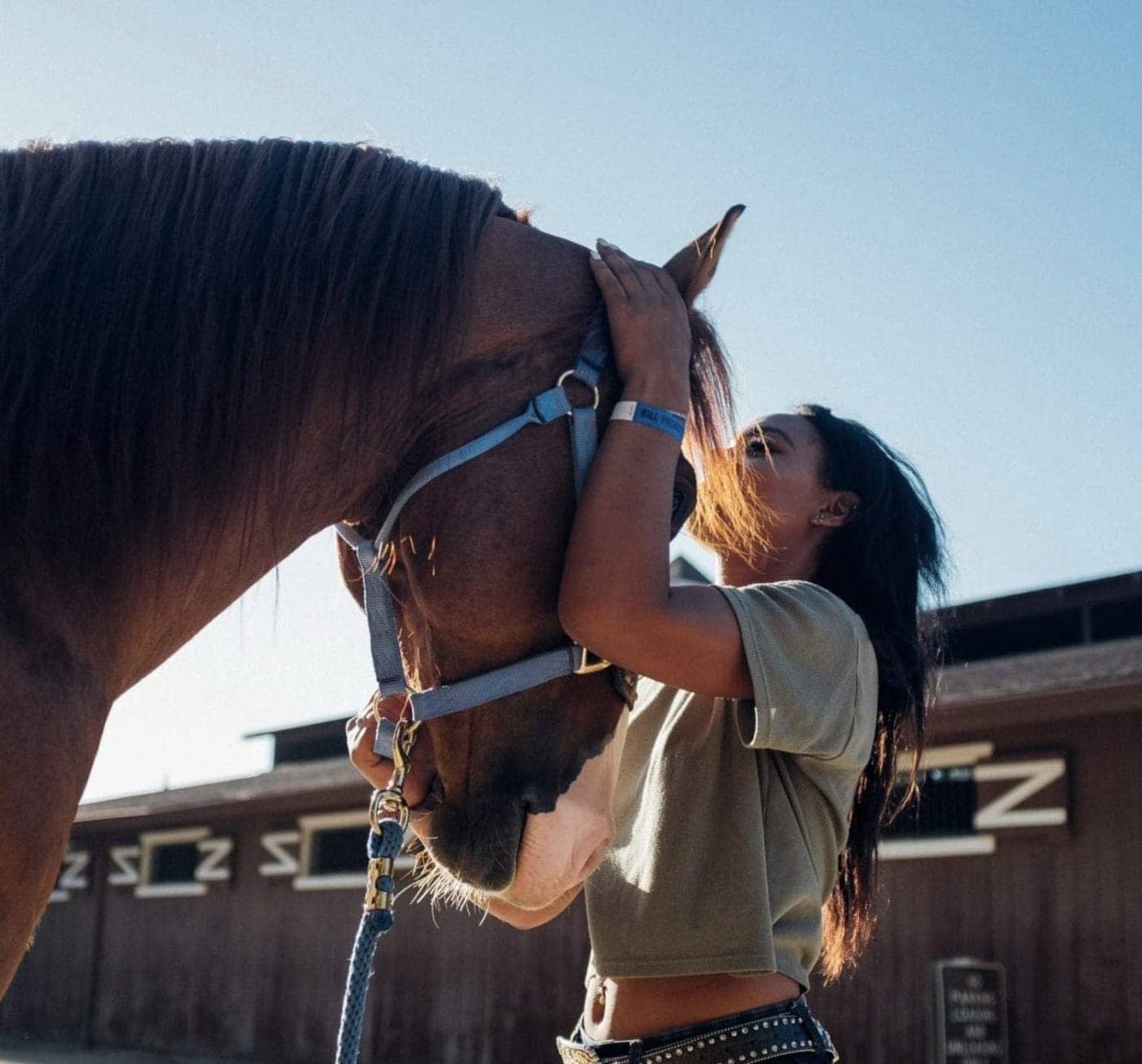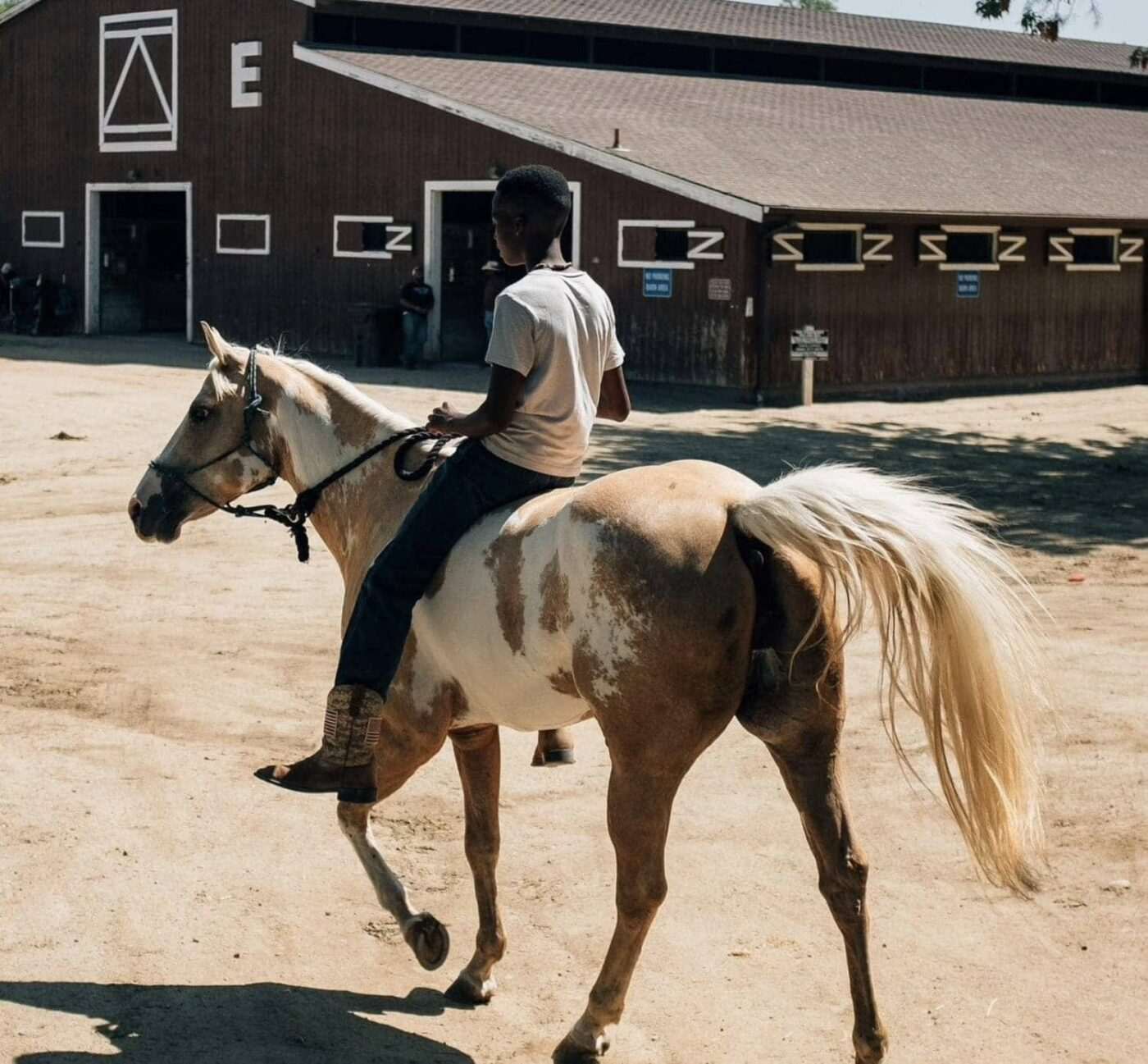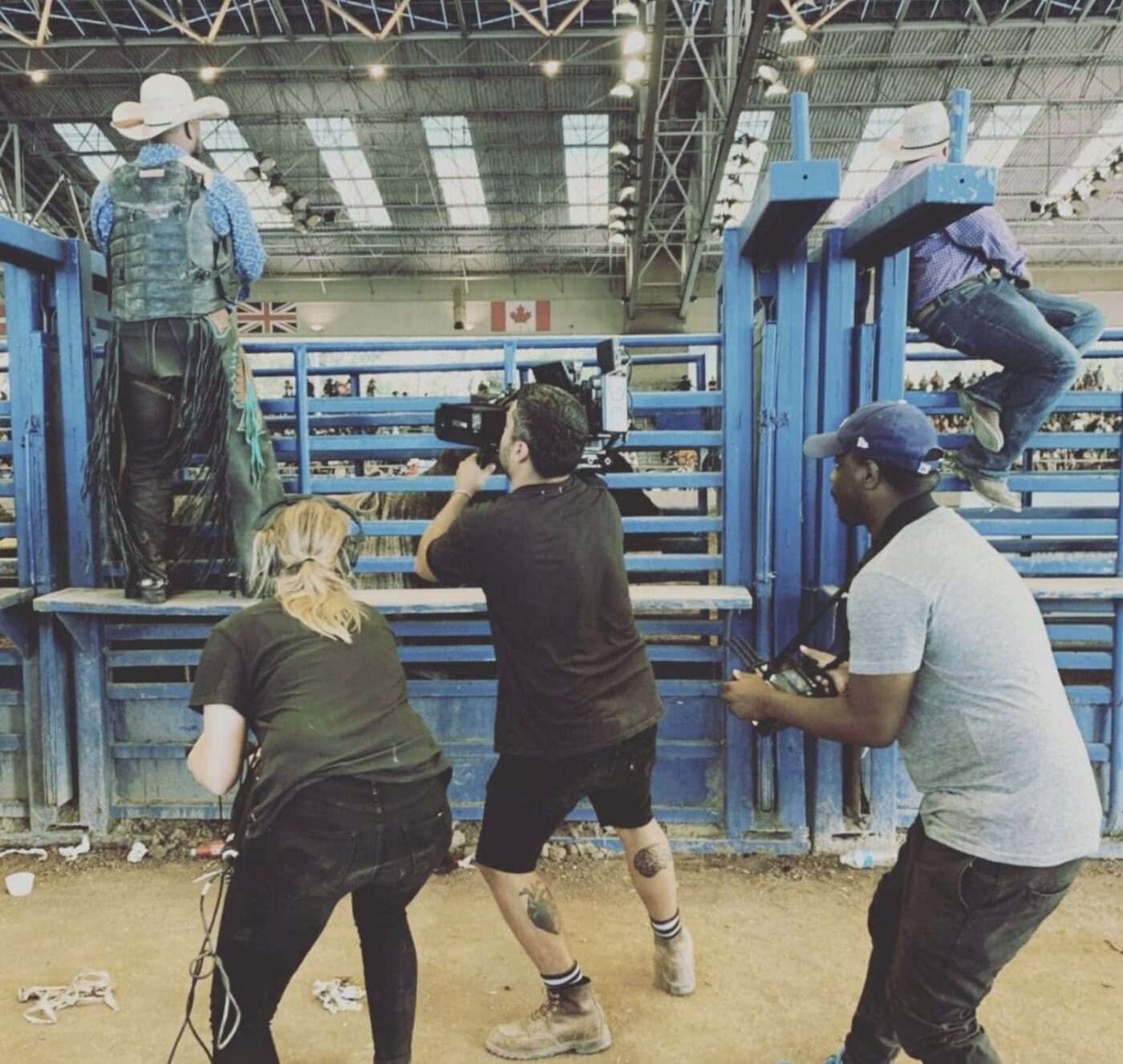
by People’s Minister of Information JR Valrey
Rodeos and cowboys are a big part of American history, and Black history specifically. The enslaved have turned the task of caring for livestock into a sport: with the competitor’s speed, will, determination and control of their animal all being tested.
One of this year’s Oakland International Film Festival selections is “Young Bucks,” which is a documentary about Black cowboys and cowgirls at the Bill Pickett Rodeo. It is one of my favorite documentaries out of all of the films selected to screen this year because the rodeo is such a part of the legacy of Black and Native people in the United States. You can see “Young Bucks” at Holy Names College on Monday, Sept. 19, from 11 a.m. to 12:15 p.m. as a part of the Oakland International Film Festival. Get more information at oiff.org. Check out filmmaker Rance Randle as he discusses the making of “Young Bucks.”
JR Valrey: What inspired the name of the film, “Young Bucks”? And what inspired its creation?
Rance Randle: Young bucks is actually a name I’d hear people in my family, and I’m sure many others, call the younger generation. It was a particular type of young person though. It was always someone who was trying to reach that next level, but wasn’t quite there yet.
That very name came to my mind while I attended the Bill Pickett Invitational Rodeo in 2018 and was intrigued by a group of young cowboys and cowgirls who had some swag to them. I thought to myself, “Look at these young bucks.”

My intrigue went deeper as I wondered what made these individuals do what they do. As our world continues to push further into the age of technology, it was interesting to see these individuals enjoying something so primal, so anti-tech. I needed to know more and that’s what led me to creating the film.
JR Valrey: How much did you know about the Black rodeo movement before doing this film, and how did you get the connections with the different people who play a part in the film?
Rance Randle: I knew very little. My mom took me to the Bill Pickett Rodeo back in 1992, and I thought it was so cool to see people who look like me riding bulls and roping. So when I got the idea for the film, I cold called the CEO, a woman by the name of Valaria Howard-Cunningham, who answered and was extremely supportive of my intent. She gave me so much time and connected me with a variety of individuals to contact.
In addition to her help, my team and I simply used our spare time during rodeo weekend to walk around and just observe the participants in their training area. We met so many people just hanging out in the barn with their horses getting in their “zone.” This was a great way for us to really immerse ourselves in their world and begin a dialogue with them.
You can trace back some of its history to Senegal when slaves were brought over to tend to livestock in colonial South Carolina.
JR Valrey: How did you pick who you wanted to cover from the rodeo scene?
Rance Randle: This was very challenging. We interviewed about 12 cowboys and cowgirls, all with such rich stories to tell. Ultimately we decided to go with the ones who gave us the most of themselves. It’s tough to have someone with a mic and camera in your face asking you deep questions, and some just weren’t that comfortable.
JR Valrey: Can you tell our audience something about the Black cowboy history of the United States?
Rance Randle: I need 500 pages to explain how impactful Black cowboys were to America; this history goes way back. It has a bit of a dark past as you can trace back some of its history to Senegal when slaves were brought over to tend to livestock in colonial South Carolina. This trend continued and the cowboys migrated down through Texas, where Blacks made up the majority of cowboys. These slaves ran the land and livestock for most of America.
JR Valrey: How long did it take for you to finish this film, from concept to post production?
Rance Randle: It took me a year and a half to finish the film. That’s a long time for just 15 minutes, but Covid really put a pause on post production. We had captured all our footage and started editing in December of 2019, and shortly after that the world went into lockdown. We had to wait for lives to get back to “kinda normal” to help get things back on track.

JR Valrey: What was your creative process like surrounding the documentary, “Young Bucks”?
Rance Randle: The process creating “Young Bucks” was pretty daunting as we had over 400 pages of transcripts to sort out and distill. That was our first step. We all really dug deep in trying to find the interviews with the most robust offering.
Once we put the “paper edit” together, our editor Andy McGraw and the team at Cartel Productions really brought this to life. We went through about 15-20 edit sessions and if we could keep going I’m sure we would have. I was extremely fortunate and blessed to have had such a supportive team. They all really contributed a great deal from inception to finalization.
JR Valrey: What is your plan for “Young Bucks” once it is off of the film festival circuit?
Rance Randle: Once “Young Bucks” is off the circuit, I will be looking into ways to continue exposing the film, to help in awareness for the Bill Pickett Rodeo. It’s such an amazing cultural event that I want to help in any way I can – to expose how vital it is to a culture we as African Americans created.
JR Valrey: What made you want to apply for this film to screen in the Oakland International Film Festival?
Rance Randle: Oakland has a special place in my heart. It’s where I shot the first piece of footage for “Young Bucks” right outside the city at Rowell Ranch. It’s also nice to be featured in such a respected festival. Those moments don’t come by often, and so when they do you take the opportunity and run. I’m appreciative to be surrounded by so many other great filmmakers. A true honor.
JR Valrey: What do you hope people who watch the screening get from it?
Rance Randle: When people see this film, I want them to understand this is more than competition; it’s more than fun. It’s soul feeding. These individuals risk their lives to find internal peace with themselves.
JR Valrey, journalist, author, filmmaker and founder of Black New World Media, heads the SF Bay View’s Oakland Bureau. He can be reached at blockreportradio@gmail.com or on Facebook. Visit www.BlackNewWorldMedia.com to read more.





